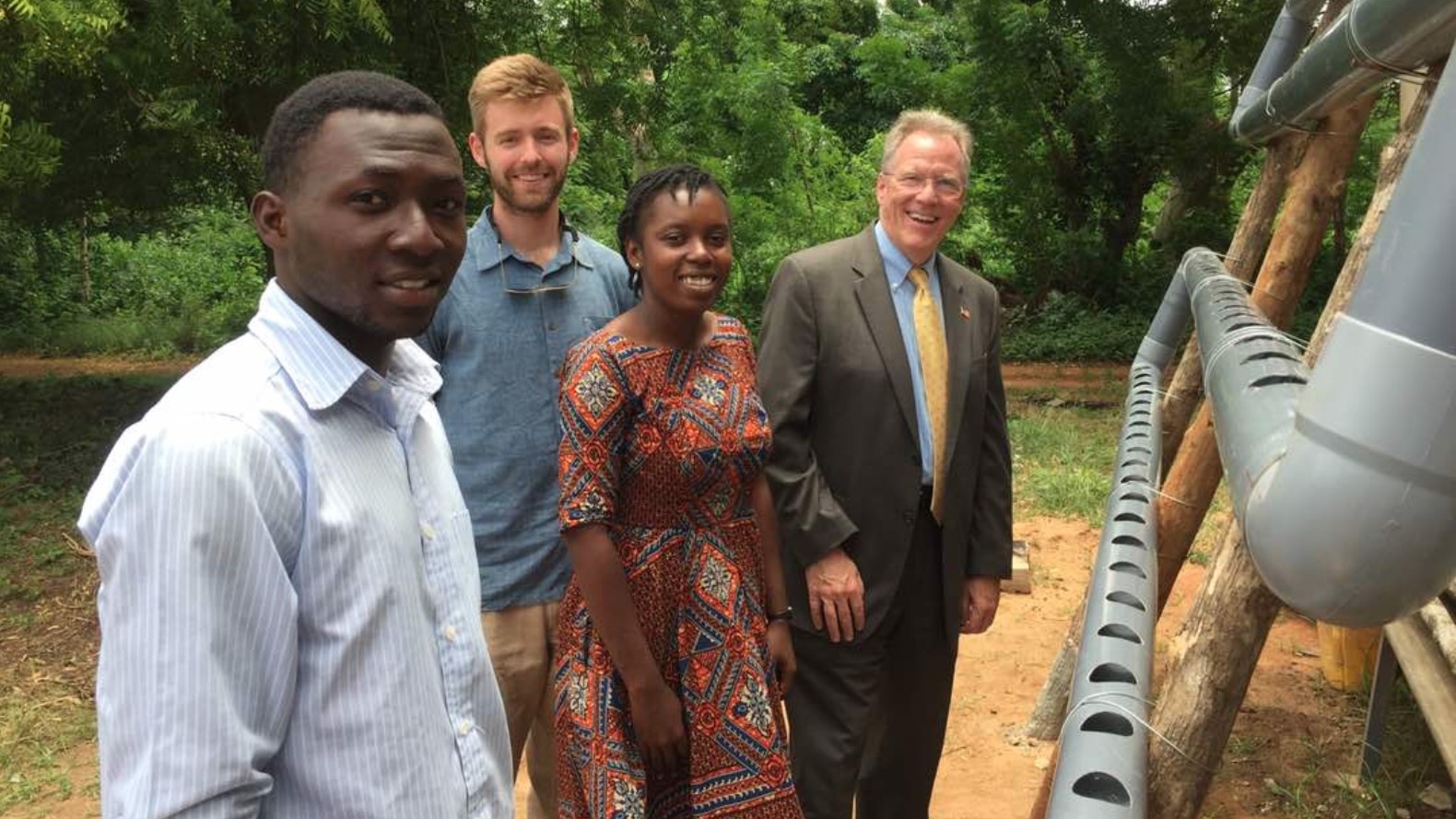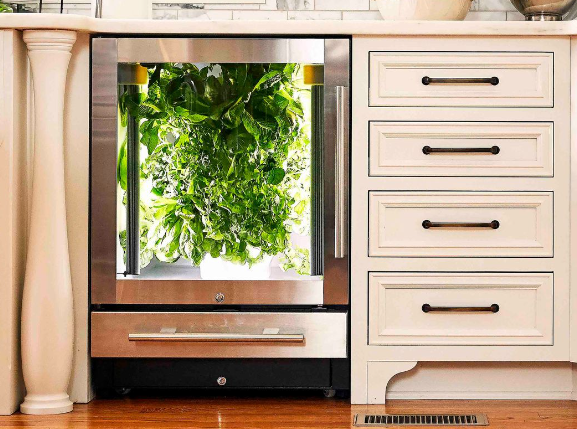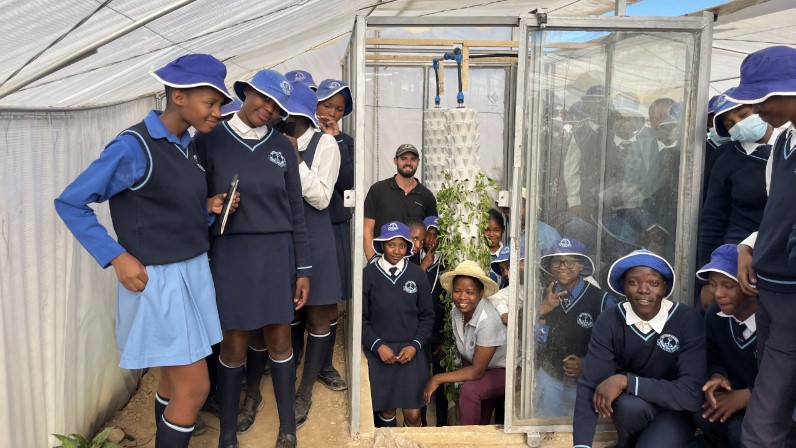
Mechanical Engineering Technology alumnus Scott Massey has been honored as one of Forbes’ 30 Under 30 in the manufacturing and technology category for his game-changing rotary aeroponics company anu. The successful start-up, co-founded with Purdue Electrical Engineering Technology alum Ivan Ball, is on a mission to fight food insecurity and unsustainable agricultural practices.
Massey and Ball’s company is using innovations in agricultural technology to commercialize an at-home smart garden that delivers fast-growing, fresh vegetable crops directly to the individual. The fully automated dishwasher-sized growth chamber fits under a counter in the kitchen and delivers daily servings of pesticide-free produce within the home.
Their methodology uses agriculture’s most novel technology: “rotary aeroponics”––a technique of plant cultivation that doesn’t require soil. Subscription-based anu seedpods are suspended in a rotating inner tower while doused with a thin mist monitored by Grow AI. The carefully curated computer system eliminates consumer error, allowing people to “focus on the fun stuff,” as Massey and Ball explain on the company website.

The results? Anu’s indoor gardens use 98% less water than traditional field farming. From leafy greens to tomatoes to cilantro, Massey writes that “anyone can be a farmer,” and perhaps, one day, everyone will be: these alien-looking chambers are laying the groundwork for a future of sustainable agriculture.
While at Purdue, Massey designed sustainable hydroponic LED growth systems for NASA’s International Space Station with professor of horticulture and plant physiology Cary Mitchell. From this experience came the idea of empowering people to grow their own produce.
Since graduating from Purdue in 2017, Massey and Ball’s small start-up has received funding from the Indiana Economic Development Corp., the Purdue Research Foundation, and the National Science Foundation. In total, Massey and Ball have raised $6,000,000 to invest in mass production and development, earning Massey a spot in Forbes’ highly coveted list of innovators and entrepreneurs.
Massey and Ball also use their technology for community development; the seedpods are not only plastic-free, but they can be exclusively solar-powered and self-sufficient, which has put anu at the front line in the fight against food insecurity.
In 2017, Massey connected with fellows from the Mandela Washington Fellowship (a flagship program of the federal government’s Young African Leaders Initiative) via the Leadership in Business Institute hosted by Purdue.
By 2018, Massey installed the first hydroponic systems in Togo, a small West-African nation where—according to UN-backed programs—nearly 24% of the youth population copes with food insecurity. Anu’s effort was part of the fellowship’s Reciprocal Exchange component, later expanded to Cameroon in 2019. The Reciprocal Exchange provides U.S. professionals with the opportunity to engage in collaborative projects with fellowship alumni in Sub-Saharan Africa.
Massey held entrepreneurship training workshops while teaching students at the University of Lomé to build hydroponic systems with cost-efficient materials available in their communities. “The Reciprocal Exchange has allowed our team to remain true toward our goal of reaching the United Nations’ zero hunger goal in the developing world without financial disruption to the business,” Massey said.

In 2022, Massey and Ball took their aeroponic gardens to the southern-African nation of Lesotho through a partnership with Tiisetso Sefatsane, Mandela Washington Fellow and member of the Basotho people.
Extreme poverty remains a chronic issue in the landlocked nation, with 580,000 people of their 2,000,000-population food insecure. The off-grid solar-powered crop system is efficient in the mountainous terrain, allowing remote areas access to fresh produce year-round.
“Having Scott as my mentor has been a true turning point for me and the community,” Sefatsane said. “The anu system has proven its sustainability as we grow vegetables throughout the year, even in the winter season’s harsh, cold weather conditions.” Sefatsane, Massey, and Ball received a Reciprocal Exchange grant to increase the capacity of the systems from 250 to 750 plants at a time.
Massey and Ball plan to continue their work in combating food insecurity as anu expands to new horizons. “Our collective vision of building a resilient future, especially in ensuring adequate nutrition amid dwindling resources, is what drives us every day,” Massey said. “I believe our greatest impacts on food sovereignty, nutrition, and safety lie ahead.”
Additional information
- “Closing the Hunger Gap” (Purdue Research Foundation)
- Promoting Food Security Through Hydroponics (Mandela Washington Fellowship)
- Who we are—anu
